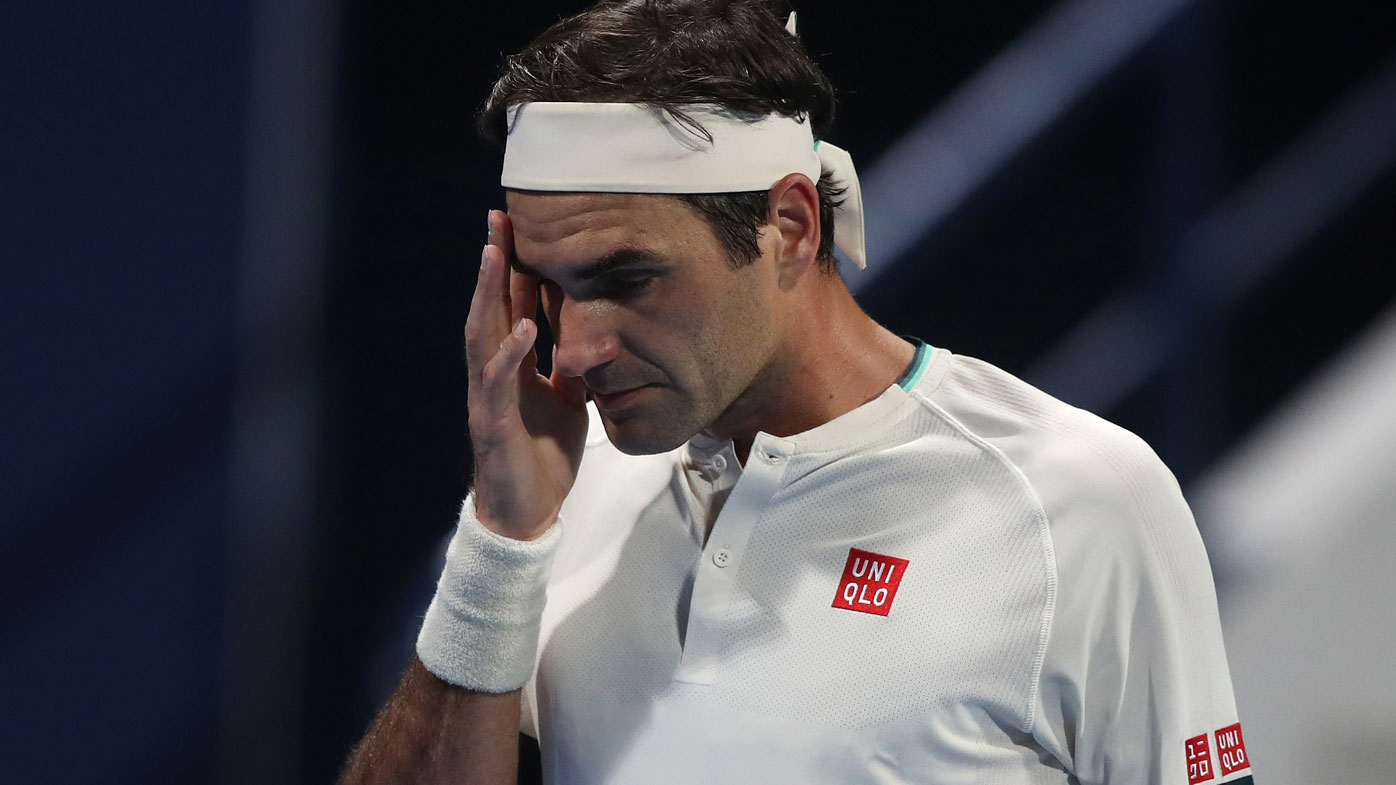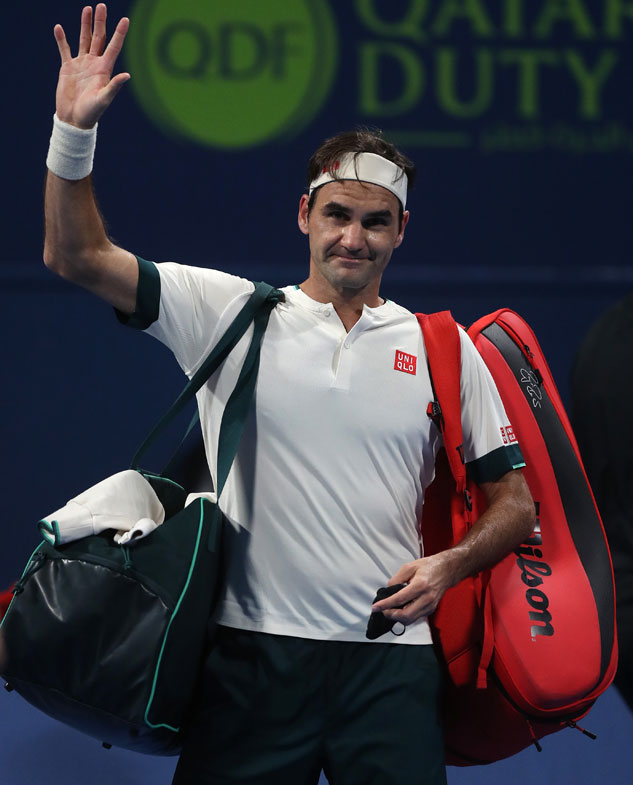There was plenty, to be sure, that was unfamiliar to Roger Federer in his first competitive match in more than a year.
Can't hand your towel to a ball person in the pandemic era. Get ready to serve 25 seconds after the previous point ended. Warmups are cut down to four minutes. And so on.
"It feels," Federer said after beating the 28th-ranked Dan Evans 7-6 (8), 3-6, 7-5 at the Qatar Open on Wednesday, "like I have been away for even longer than I actually have been."
What the 20-time Grand Slam champion discovered did not change one bit after all of that time away from tournaments, an absence brought about by two operations on his right knee: He still feels tension and excitement before he plays. He still knows which shots to try, and when. He still can rise to the occasion when the chips are down.
He was not, however, able to do that on Thursday, losing his quarterfinal in another demanding three-setter, 3-6, 6-1, 7-5 to Nikoloz Basilashvili.
"I'm not 100% yet," he said. "I can feel it. I can see it, you know. From that standpoint, important is to be 100% by the grass court season. I know that. I'm still building up. So this is a steppingstone."
On Wednesday, Federer acknowledged he was a tad tired by the end of the nearly 2 1/2-hour victory over Evans. And yes, Federer did win with the help of 13 aces and a service break — the only one he managed — in the very last game.
What matters far more in the scheme of things than the results or the way they came about is that he cares about success and, against Evans, conjured up what's necessary to find it.
All of which bodes well for folks who might have been worried about whether Federer would, indeed, be back at all and whether he will stick around as his 40th birthday approaches on Aug. 8 — and beyond.
"I was very happy with how I was able to handle the tough moments. I didn't feel like my game started to wobble the more important the points got. I think I was able to play how I wanted to play, so I think that's always a great sign and a great feeling to have," Federer said in a post-match video conference.
"In practice, it doesn't matter if you miss a backhand down the line, being down break point," he said. "But here it matters a lot."
He was thrilled not to double-fault once, which he took as a sign that his knee is doing well (another sign: There was no need to take any pain-killing pills afterward). He wanted to see how his body would hold up under the stress of moving forward to the net — and passed that test, too.
"I was really explosive, actually," Federer concluded.
What didn't concern him were the occasional shanked shots, which he would greet with a shake of the head or a smile or even a little laugh. That timing will take some, well, time.
He had not competed since losing in the Australian Open semifinals to Novak Djokovic on Jan. 30, 2020. The following month, Federer had the first surgery on his knee. When he found himself dealing with swelling in it after riding a bike or going for a walk with his kids months later, Federer had a second procedure.
All of that time away is not something Federer is accustomed to. He didn't miss a single Grand Slam tournament from 2000 to 2016.
For years, even while fully healthy, Federer faced questions about how long he'll keep playing. And while he says he never seriously contemplated retirement, he did make clear during his news conference ahead of the Qatar Open that there will be more to come, saying: "I just feel like the story's not over yet."
His schedule is a bit up in the air in the coming months — he already pulled out of the Miami Open, for example, and hasn't committed publicly to appearances on the clay-court circuit. Federer is aiming to peak in June on the grass of Wimbledon, where he has won eight championships.
Evans, for one, wants to find out what comes next for the player whose men's record for most major singles trophies was equaled by Rafael Nadal last year and whose mark for most weeks at No. 1 in the ATP rankings was surpassed by Djokovic this week.
"From a fan's point of view, it's going to be interesting to see how he goes at his age — he's 39, and that's obviously unheard of, that someone is still competing for Grand Slams at that age," said Evans, who spent two weeks practicing with Federer this year.
"It's going to be real good to watch for everybody, to see what happens, see if he wins. I think most people would hope he wins another, probably, Wimbledon," Evans said. "We'd all be pretty pumped if he got over the line at another Slam."


Leave a Reply
You must be logged in to post a comment.